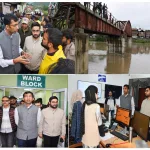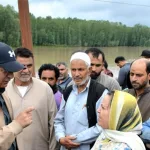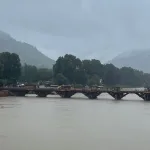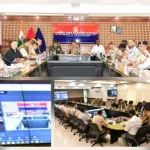In the valley of Kashmir, a social trend has been quietly taking root, altering the fabric of traditional Kashmiri society: the phenomenon of late marriages. This shift from early to late nuptials is far from just a statistic; it is a reflection of changing socio-economic conditions, educational aspirations, and evolving gender roles. This article delves into the complexities and consequences of late marriages in Kashmir, exploring the underlying causes and their impact on individuals and society.
For years now the subject of delayed marriages has been viewed from various standpoints, with unanimous opinions expressing consternation about this prevailing trend. In the past, many experts have correlated the practice of delayed marriages with new social norms and common attitude of the people; and, social evils in the form of dowry and party extravaganza.
Historically, Kashmiris, much like in other South Asian societies, practiced early marriages, with individuals often being wedded in their late teens or early twenties. However, over the past few decades, there has been a noticeable delay in the age at which people are getting married. According to a study by the Department of Sociology at the University of Kashmir, the average age of marriage has risen significantly in both urban and rural areas. This development is not unique to Kashmir but is a part of a global trend where marriage is increasingly being postponed.
One of the primary reasons for late marriages in Kashmir is the increased emphasis on education. As more Kashmiri youth, especially women, pursue higher education and professional careers, the age of marriage naturally gets pushed back. This is a positive sign in terms of gender equality and empowerment, as education opens up more opportunities for women, allowing them to be more independent and to make more informed decisions about their lives, including marriage.
With the prolonged period of terrorism in the valley, economic hardships have also played a critical role in delaying marriages. The financial burden of organizing a wedding, which in Kashmiri culture involves elaborate ceremonies and substantial dowries, has become more onerous. Consequently, many families and individuals find themselves needing more time to accumulate the necessary resources, which pushes the age of marriage higher.
Moreover, the Kashmiri diaspora and the influence of Western norms have also contributed to this trend. As Kashmiris travel and settle abroad for education or employment, they are exposed to cultures where late marriages are common. These experiences often shape their perspectives on marriage and influence the marital customs back home, as they bring with them the ethos of personal development and financial stability before settling down.
The implications of late marriages are manifold. On the positive side, individuals who marry later often have a better sense of self, are more mature, and have established careers, which can contribute to more stable and happy marriages. However, this trend also brings challenges. For instance, late marriages can lead to a compressed timeline for having children, which can increase health risks for both mother and child and add pressure on couples who may desire larger families.
Additionally, the societal pressure to marry can intensify with age, particularly for women, leading to psychological stress and social stigma. In Kashmiri society, where marriage is seen as a rite of passage, being single beyond a certain age can be viewed negatively, and the individuals may face scrutiny and invasive questioning from their community.
Late marriages also have demographic implications. As people marry later and consequently have fewer children, this can lead to an aging population and a reduced workforce, potentially impacting the region’s economy and societal structure in the long term.
Many social scientists blame higher education to be responsible for delaying the ‘marriage age’, yet others blame the collective social apathy, job market, excessive individualism and indifference to customs by young generation. Some arguments and premises that would reveal more grey shades and add to our understanding and dealing with the problem are: personal inhibitions, self exonerations and how to deal with them, the centrality and status of marriage, the vehicles needed to stimulate or hasten betrothal processes, beat back the false beliefs and unnecessary customs, modern rituals.
Prima facie, the centrality of marriage needs to be diluted in order to minimize personal inhibitions, as they can be argued to be related. Marriage, as a biological, psychological and social need must entail a balance in life. In Kashmir, the dominant trend is too much importance on and too many expectations from this vital social institution. The wedlock which is meant to bind two people, two lives to bask in the natural order has become absurd with all kinds of experiments and inventions
Despite the challenges, it is important to recognize that the trend towards late marriages also reflects a society in transition. Kashmiris are adapting to new realities, balancing tradition with modernity.
(Author is PhD in sociology and working as Asst Professor in New Delhi)





